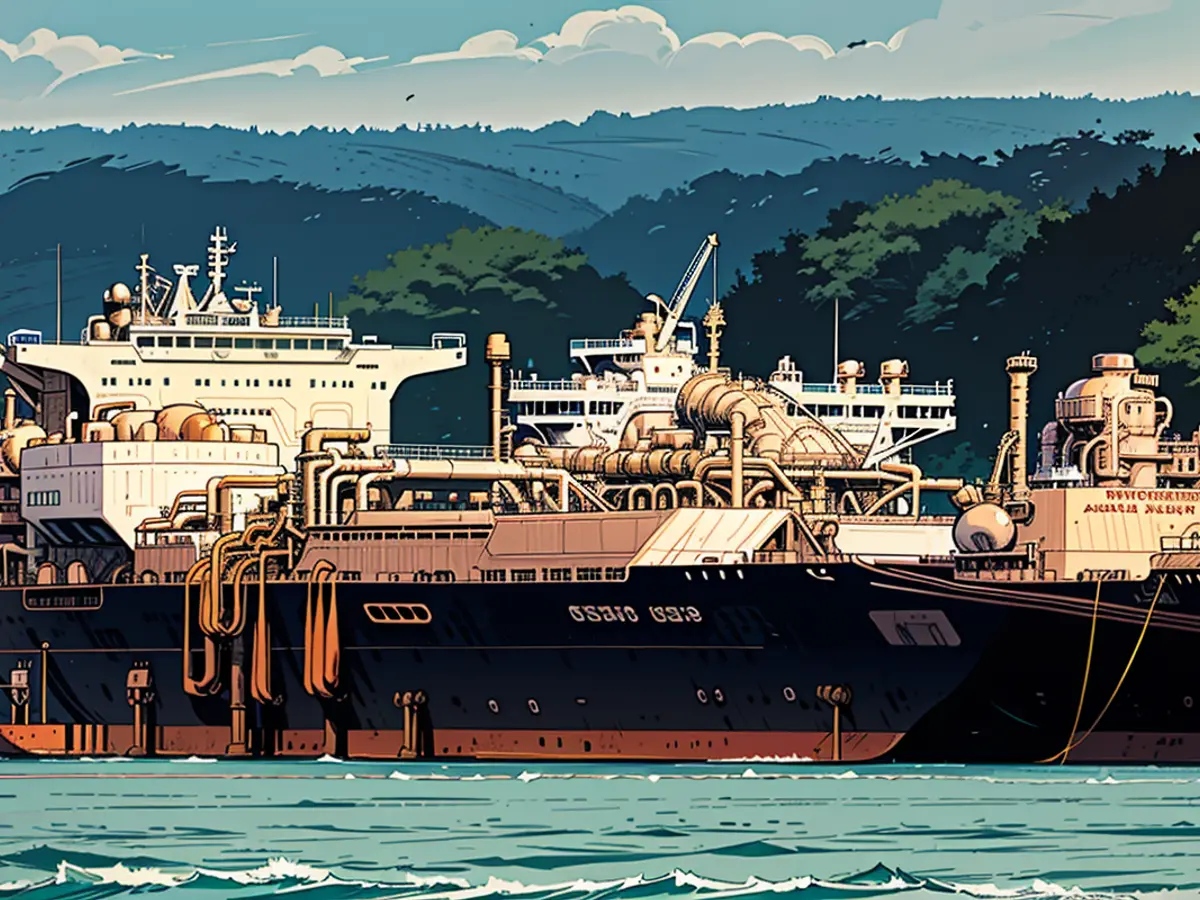- Gas supply: doubts about the need for an LNG terminal in Rügen
The delays in the start of regular operations at the Liquefied Natural Gas (LNG) terminal in Mukran on the island of Rügen have reignited the debate surrounding the necessity of a gas import harbor on Germany's Baltic Sea coast.
After the project was pushed through against the will of local residents and with consequences for the environment, there now seems to be a lack of demand. "No one wants it, no one needs it: The LNG terminal on Rügen is an expensive and unnecessary investment ruin," explained Constantin Zerger of the German Environmental Aid. Germany's gas storage facilities are full, and the threatened shortage has never materialized.
Backhaus seeks information on supply situation
Mecklenburg-Vorpommern's Minister for the Environment, Till Backhaus (SPD), continues to hold his critical stance on the project. As stated by a ministry spokesperson, Backhaus will again contact Federal Minister of Economics Robert Habeck (Greens) to find out if the federal government still sees the danger of a gas shortage. After the fierce protests on Rügen against the terminal construction, the state government also spoke out against the project, but the state authorities were bound by the guidelines from Berlin. Backhaus emphasized that the environmental impact assessments were carried out in a legally sound procedure without external or internal interventions.
Threatened gas shortage as project accelerator
The federal government had pushed the development of LNG import infrastructure in the form of terminals on the North and Baltic Seas in response to Russia's attack on Ukraine, in order to become independent of Russian gas supplies. The threatened shortage was the decisive reason for including the harbor of Mukran in the LNG Acceleration Act, which significantly shortened the planning and construction of the terminal.
In Mukran, two special ships are located, which take in liquefied natural gas (LNG) delivered by tankers and convert it back into gas. The gas is then transported via a approximately 50-kilometer long pipeline through the Baltic Sea to the pipeline junction in Lubmin near Greifswald. The targeted total capacity was given by the operator Deutsche Regas as 13.5 billion cubic meters of gas per year, which corresponds to approximately 15 percent of Germany's current annual consumption. The investment costs were reportedly around 200 million euros.
Differing statements on the start of regular operations
The permit for continuous operation of the terminal was already issued by the Ministry of the Environment in Schwerin in April. At that time, Deutsche Regas had announced the start of regular operations for May, but this did not happen. There are now differing statements from the operator and the authorities regarding the planned start.
According to the ministry, the start was indicated by the operator on July 21 for August 5. This can be confirmed accordingly. However, Regas stated that the regular operation was ultimately not indicated for August 5 or this week. "The reason for this is still not completed coordination measures with various partners in the terminal operation," explained Regas upon request.
Gas mainly still comes through pipelines
Despite the supply stop from Russia, Germany continues to obtain the overwhelming majority of natural gas through pipelines, especially from Norway, the Netherlands, and Belgium. Liquefied natural gas accounts for less than ten percent, according to industry estimates.
According to the German Environmental Aid, the current demand for liquefied natural gas is low. No bookings for the terminal in Mukran are recorded on the transparency platform of the European gas industry "Gas Infrastructure Europe." Regas has postponed a planned auction for the allocation of terminal capacities until further notice. "The LNG tankers announced by Deutsche Regas on a weekly basis are not in sight," said Zerger.
Despite the gas shortage being used as a justification for the acceleration of the LNG terminal project in Mukran, Germany's gas storage facilities are currently full, and the threatened shortage has not materialized. In light of this, Mecklenburg-Vorpommern's Minister for the Environment, Till Backhaus, is seeking information from Federal Minister of Economics Robert Habeck to determine if the federal government still sees the necessity of a gas import harbor due to a potential gas shortage.








